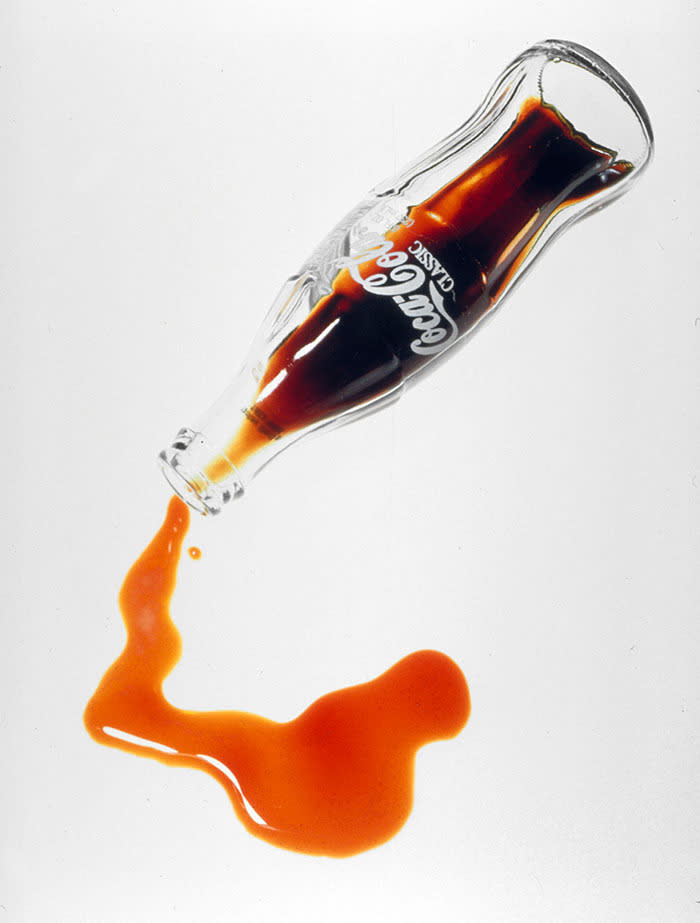Soda Companies Funded Nearly 100 Health Organizations Despite Conflict of Interest, According to Investigation

A study found that at least 96 health organizations were given money from one or both of the country’s largest soda companies. (Photo: Getty Images)
Talk about a conflict of interest: A new study published in the American Journal of Preventive Medicine reveals that at least 96 health organizations received funding from either one or both of the country’s largest soda companies between 2011 and 2015.
According to the findings from investigators at Boston University (BU), The Coca-Cola Company and PepsiCo sponsored these health organizations during the same five-year period when the soda companies were lobbying against at least 28 public health bills intended to reduce soda consumption or improve nutrition.
“While previous research has provided anecdotal evidence of soda company sponsorship of health and medical organizations, our objective was to conduct a systematic investigation into these sponsorships,” Michael B. Siegel, M.D., co-study author and a professor in the department of community health sciences at the BU School of Public Health, tells Yahoo Beauty.
Two discoveries “surprised” Siegel and his research colleague Daniel Aaron, a medical student at the BU School of Medicine.
“First was the sheer extent of soda company sponsorship of medical and public health organizations in the U.S.,” he states. “Second, we were very surprised to find that several organizations whose direct mission is to fight obesity were taking money from soda companies.”
Siegel questions this major conflict of interest.
“For example, how could the American Diabetes Association possibly take money from a soda company when its primary mission is supposed to be to fight diabetes and we know that 95 percent of Type 2 diabetes is attributable to obesity or overweight?” he says. “Similarly, acceptance of soda company funding by organizations such as the American Dietetic Association, the American Heart Association, and the American Academy of Pediatrics were surprising for the same reason.”
He further explains that these health organizations “are shooting themselves in the foot.”
“Corporate sponsorships are a well-recognized strategy for marketing products by helping to create a positive public image and deterring criticism from organizations that would otherwise be promoting policies to reduce the use of these products,” continues Siegel. “Because sponsorship is actually a marketing strategy used by companies to improve their public image and affect their bottom line — increase sales of their products — public health organizations that accept funding from these companies are unwittingly participating as pawns in the marketing efforts of these companies.”
Siegel adds: “In other words, they are essentially acting to promote soda consumption. This is a direct conflict of the mission of these organizations to try to reduce obesity, in part through a reduction in soda consumption.”
Yahoo Beauty reached out to five of the organizations mentioned in this study. The Healthy Weight Commitment Foundation is closed today in honor of the national holiday. The American Academy of Pediatrics, the Centers for Disease Control and Prevention, and the Juvenile Diabetes Research Foundation (JDRF) did not respond to our request for a comment.
However, the JDRF did release a written statement obtained by other news outlets, such as The Washington Post, explaining that the “fundraisers in question were individual local initiatives” and not national sponsorships. The foundation also noted “that JDRF supports research for Type 1 diabetes, an autoimmune disease” not caused by “diet or lifestyle choices.”
The American Academy of Family Physicians (AAFP) offered a prompt response by directing us to a June 2015 statement, which announced the end of their Consumer Alliance Program agreement with The Coca-Cola Company.
“This partnership provided AAFP members with evidence-based information on sugary beverages, sweeteners and healthy living benefits,“ Craig Doane, AAFP vice president of journal media and strategic partnerships, told AAFP News.
“We do not expect the food industry to change its practices because sponsorship is a marketing activity and these companies have every right to market their products,” states Siegel. “What needs to change is health groups agreeing to take this money and therefore act as pawns in these corporate marketing practices.”
Siegel’s hope is that health organizations will refuse to accept funds from soda companies in the future (like the University of Colorado did in 2015), “at least until these companies end their vigorous lobbying against public health measures intended to reduce obesity,” he says.
He also advises concerned citizens to write or call these health organizations and “demand that they stop taking money from companies that are undermining the public’s health by lobbying against public health policies.”
Let’s keep in touch! Follow Yahoo Beauty on Facebook, Twitter, Instagram, and Pinterest.


